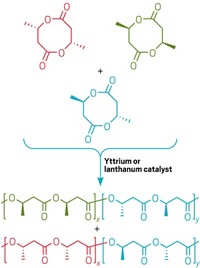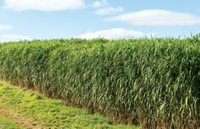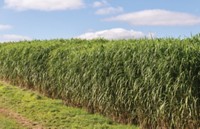Advertisement
Grab your lab coat. Let's get started
Welcome!
Welcome!
Create an account below to get 6 C&EN articles per month, receive newsletters and more - all free.
It seems this is your first time logging in online. Please enter the following information to continue.
As an ACS member you automatically get access to this site. All we need is few more details to create your reading experience.
Not you? Sign in with a different account.
Not you? Sign in with a different account.
ERROR 1
ERROR 1
ERROR 2
ERROR 2
ERROR 2
ERROR 2
ERROR 2
Password and Confirm password must match.
If you have an ACS member number, please enter it here so we can link this account to your membership. (optional)
ERROR 2
ACS values your privacy. By submitting your information, you are gaining access to C&EN and subscribing to our weekly newsletter. We use the information you provide to make your reading experience better, and we will never sell your data to third party members.
Materials
A Simple Acid Soak Turns Food Waste Into Plastics
Materials: Cellulose-processing technique used in biofuel production turns inedible plant material into bioplastics
by Puneet Kollipara
July 25, 2014

Researchers report a simple method to convert food waste into cellulose-based plastics of varying thermal and mechanical properties (Macromolecules 2014, DOI: 10.1021/ma5008557).
Most synthetic plastics have environmental concerns: They’re petroleum-based; they can’t biodegrade; or they potentially contain toxic compounds such as phthalates. Ilker S. Bayer, Athanassia Athanassiou, and their colleagues at the Italian Institute of Technology have sought ways to make plastics from biomass so that the materials are renewable, biodegradable, and possibly less toxic. One potential feedstock is cellulose, which, as a component of plant cell walls, is nature’s most abundant renewable polymer.
In their new plastic-making method, the researchers turned to a technique that’s normally used to break down cellulose into simpler sugars for biofuel production: soaking the material in acid. Because the researchers only wanted to break apart the cellulose’s crystalline structure—and not convert it into simple sugars—the team used trifluoroacetic acid (TFA), which isn’t as strong as acids used in biofuel applications.
The team used TFA to soak inedible waste from four food crops: spinach, rice, cocoa beans, and parsley. After several days of soaking, the researchers removed the volatile acid, yielding plastic coatings and films with a variety of mechanical properties. These materials have tensile strengths similar to synthetic polymers such as polyethylene terephthalate and polyethylene, the researchers say. The plant-waste plastics start to thermally degrade at temperatures between 150 and 300 ºC, which is similar to the range for synthetic polymers.





Join the conversation
Contact the reporter
Submit a Letter to the Editor for publication
Engage with us on Twitter